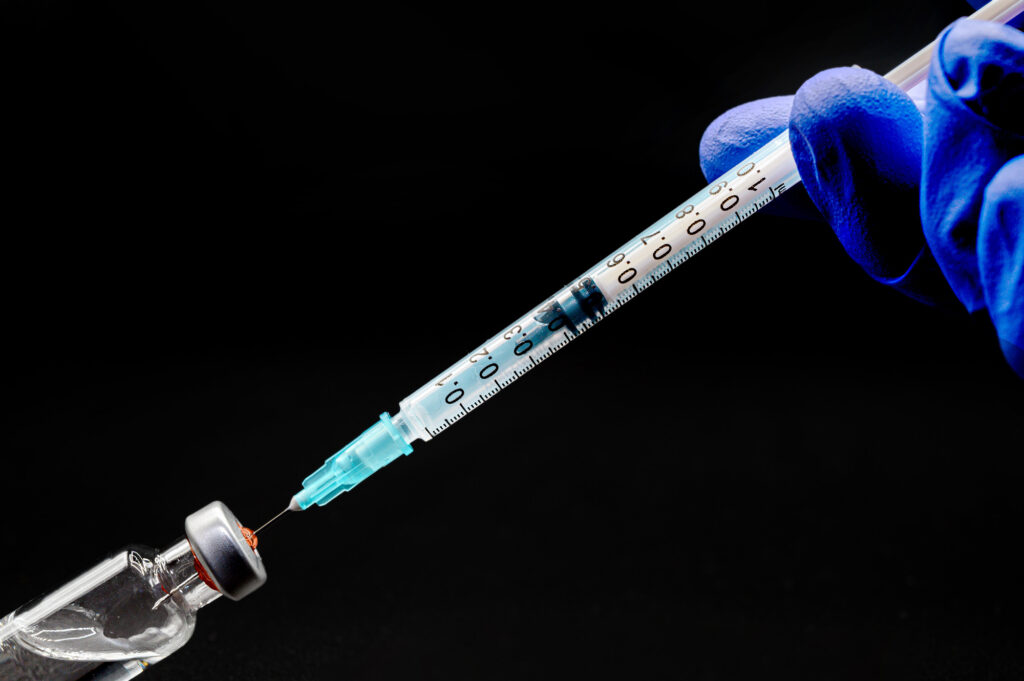“After two years of trials, involving more than 400 adults with OPS, researchers have published the abstract of their findings in the New England Journal of Medicine. The study was sponsored by Eli Lilly, the maker of Mounjaro and Zepbound. Tirzepatide reduced symptoms of OPS* by nearly two-thirds, or 66% in some adults, while a placebo only resulted in a reduction of 5%.” – Healthline
*What is OPS? “OPS obesity” refers to “Obesity Hypoventilation Syndrome” (OHS), a breathing disorder that affects some people with obesity, causing them to have abnormally high levels of carbon dioxide in their blood due to slow breathing (hypoventilation) which can lead to serious health complications if left untreated; it’s also sometimes called “Pickwickian syndrome”.
“On December 20, 2024, Eli Lilly announced the FDA has approved Zepbound (tirzepatide) as the first and only prescription medication for adults with moderate-to-severe obstructive sleep apnea and obesity.” – AASM.org
“Among persons with moderate-to-severe obstructive sleep apnea and obesity, tirzepatide reduced the AHI, body weight, hypoxic burden, hsCRP concentration, and systolic blood pressure and improved sleep-related patient-reported outcomes.” – NIH study
Can the makers of these new weight loss medications really claim to treat and cure Obstructive Sleep Apnea (OSA)? Is GLP-1 now considered a cure for OSA? Can a diagnosed sleep apnea patient discontinue use of their CPAP treatment after starting a GLP-1 drug?
In this article, we will first discuss how GLP-1 medications work, what health benefits they provide, as well as the risks and complications they can cause. And then discuss the correlation between GLP-1 injectables and their effect on patients with pre-existing Obstructive Sleep Apnea.
What is GLP-1 Drugs and How do they Work?
GLP-1 stands for glucagon-like peptide-1, and it’s a naturally occurring hormone produced in the intestines that plays a crucial role in regulating blood sugar levels. GLP-1 receptor agonists are a class of drugs that help regulate blood sugar and appetite. They work by mimicking the natural GLP-1 hormone, which is released in the gut after eating. Here’s how they function:
- Increase Insulin Secretion – They stimulate the pancreas to release insulin when blood sugar levels are high, helping lower blood glucose.
- Suppress Glucagon Release – Glucagon is a hormone that raises blood sugar by signaling the liver to release stored glucose. GLP-1 drugs reduce glucagon levels, preventing unnecessary glucose release.
- Slow Gastric Emptying – They slow down how quickly food leaves the stomach, leading to longer-lasting feelings of fullness and more gradual blood sugar increases after meals.
- Reduce Appetite and Promote Weight Loss – These drugs act on the brain (hypothalamus) to decrease hunger, which can lead to reduced calorie intake and weight loss.
Because of these effects, GLP-1 receptor agonists are commonly used to treat type 2 diabetes and obesity. A list of GLP-1 medications include:
- Dulaglutide (Trulicity®)
- Exenatide (Byetta®)
- Exenatide extended-release (Bydureon®)
- Liraglutide (Victoza®)
- Lixisenatide (Adlyxin®)
- Semaglutide injection (Ozempic®)
- Semaglutide tablets (Rybelsus®)
- Tirzepatide (Mounjaro® and Zepbound®)*
What are the potential health risks and side effects of GLP-1 class of medications?
GLP-1 medications like Ozempic, Wegovy, Mounjaro, and Trulicity can be highly effective for weight loss and diabetes management, but they come with potential downsides.
- Nausea, Vomiting, and Diarrhea – Many people experience digestive issues, especially when starting the medication or increasing doses.
- Constipation – Slowed digestion can lead to bloating and constipation.
- Gastroparesis (Slow Stomach Emptying) – Some users report severe stomach slowing, leading to long-lasting nausea and discomfort.
- Injection site reactions – Some may experience skin irritation including redness, pain, swelling at the site of the injection.
- Potential Muscle Loss – Rapid weight loss can sometimes lead to muscle loss, especially if protein intake and resistance training aren’t prioritized.
- Increased Risk of Gallstones & Gallbladder Disease – Rapid weight loss can trigger gallstone formation, leading to pain or the need for gallbladder removal.
- Risk of Regaining Weight After Stopping: Many people regain weight if they stop taking GLP-1 drugs, as appetite and cravings can return.
- Pancreatitis (Inflammation of the Pancreas) – Some users develop severe abdominal pain, a rare but serious side effect.
- Thyroid Cancer Risk (Black Box Warning) – Studies in rodents show a potential risk for medullary thyroid cancer, though human risk is unclear.
- Kidney Issues – Dehydration from nausea and vomiting can put stress on the kidneys.
- Long-term side effects are still unclear – While GLP-1 drugs have been studied for diabetes for years, their long-term effects on weight loss and metabolism are still being researched.
While we are not promoting GLP-1 medications in this article, if you are considering them, it’s best to weigh the benefits versus risks while also discussing treatment options with your healthcare provider.
What are the potential health benefits of weight loss associated with GLP-1 medications?

While many of the drug manufacturers, as well as the various compounding pharmacies**, continue to promote and make superfluous claims on all the health benefits of GLP-1 medications, consumers need to be aware of the downsides. It’s well known that obesity causes a host of complications and health concerns, so therefore a reduction in weight for those who are clinically overweight and obese may experience a host of health benefits. Studies claim that even a 5-10% weight loss can lead to significant improvements, improving both physical and mental well-being. Some of these health benefits of weight loss include lowering A1C, blood pressure and cholesterol levels.
- Reduction in Type 2 Diabetes, as weight loss improves insulin sensitivity, lowers blood sugar, and can even put diabetes into remission.
- A reduced risk of heart disease and stroke, with lowered blood pressure, improves cholesterol levels (reducing LDL and increasing HDL), and decreases inflammation.
- Lowered cancer risk of obesity-related cancers (breast, colon, liver, kidney, etc.).
- Improved hormonal balance with a reduced estrogen levels that can lower excess estrogen from fat tissue decreases the risk of hormone-related cancers.
- Enhanced joint health and mobility with less stress on knees, hips and back, thus lowering arthritis pain. You can include with that a lower risk of osteoarthritis as there is less inflammation and strain on cartilage.
- Increased energy and better physical function leading to more motivation to exercise, and with improved physical function, exercise becomes easier with increased endurance, flexibility and ease of movement.
- Improved mental health with lower anxiety & depression, because exercise and weight loss boost mood-enhancing neurotransmitters like serotonin and dopamine.
- Longer life expectancy with less risk of premature death from heart disease, stroke, diabetes, and other obesity-related conditions.
And finally, weight loss can contribute to a reduction sleep apnea and snoring, leading to deeper, more restful sleep. How can it reduce apnea events at night? With less fat around the neck there is less airway obstruction, which can improve sleep quality if that is the general cause of a patient’s apnea events.
Can GLP-1 drugs cure Sleep Apnea?
On December 20, 2024, the U.S. Food and Drug Administration approved Zepbound® (tirzepatide) for the treatment of moderate to severe obstructive sleep apnea (OSA) in adults with obesity, to be used in combination with a reduced-calorie diet and increased physical activity.
“As I have mentioned before, patients benefit most when weight management is used in combination with CPAP therapy and this approval will provide that opportunity for many patients living with OSA. Weight management is not a replacement for CPAP therapy for patients with obesity-related moderate to severe sleep apnea. CPAP remains the gold standard for any patient with moderate-to-severe OSA and provides immediate relief to patients from the onset of treatment.” – Chief Medical Officer, Carlos Nunez of ResMed.
“Time will tell whether or not GLP-1’s are curative for OSA, likely in some cases, but unlikely in most. Weight loss certainly improves overall health and sleep.” – Mark Rasmus, M.D. and Medical Director at Everything Sleep Idaho
So is GLP-1, specifically tirzepatide, a cure for Obstructive Sleep Apnea? That depends …. The short answer is GLP-1 drugs do not directly cure sleep apnea, but can improve symptoms in certain cases.
The only GLP-1 medication FDA approved to treat moderate to severe OSA in obese adults is Zepbound® (tirzepatide). CPAP, PAP, and BiPAP therapies are still considered by the medical community to be the most used, most tried and true, and most effective treatment for sleep apnea, showing a proven reduction in patient’s apnea-hypopnea index (AHI)—the number of apnea and hypopnea events experienced per hour—by an average of 86%.
“Not all patients diagnosed with OSA are obese, in fact, “OSA is present in approximately 40% of people affected by obesity.” – AHA Journals

GLP-1 medications are not a cure for sleep apnea, but they can help improve or even resolve it in some cases by addressing one of the major underlying causes of sleep apnea, if that cause is specifically obesity. Thus, if excess weight is the primary cause of your OSA, then significant weight loss from GLP-1 therapy may lead to a major reduction in symptoms over time, or in very rare cases full remission of the sleep disorder.
Yet for many OSA patients, obesity is not the determining cause or the only contributing factor of their symptoms of OSA. Some patients have structural airway issues (like a small airway or large tonsils) that won’t be fixed by weight loss alone. In these cases, GLP-1 drugs may help but not completely cure the condition. And even if a patient’s weight is the primary reason of their OSA, it’s still not recommended to discontinue your CPAP treatment when you start your GLP-1 injections. Why?
First of all, it could take months before a significant weight loss will improve OSA symptoms, if at all. Second, GLP-1 drugs have shown an incredible capacity for weight loss, but the complications and side effects, as well as the cost often make it prohibitive for long-term use. So discontinuing the CPAP treatment, even for a short term, can significantly increase the risks associated with poor sleep quality.
So while taking GLP-1 prescribed drugs or compounded medications, for short or long-term use, the following additional treatments should be continued or added to your regimen:
- CPAP Therapy – Continuous positive airway pressure (CPAP) remains the gold standard for treating sleep apnea.
- Lifestyle Changes – Combining GLP-1 drugs with exercise and healthy sleep habits can improve outcomes.
- Surgery or Dental Devices – For some, other medical interventions may be necessary.
- Good sleep hygiene – Adhering to a set of healthy habits that can help you fall asleep faster and sleep more soundly include a consistent sleep schedule, cool, dark, and quiet bedroom environment, avoiding use of phones, TV and other electronic devices before bed, avoiding large meals and caffeine before bed, and adding calming, relaxing bedtime routines.
**What are compounding pharmaceuticals of GLP-1? GLP-1 (glucagon-like peptide-1) compounding is the practice of creating custom mixtures of GLP-1 receptor agonists (GLP-1 RAs), such as semaglutide, liraglutide, and tirzepatide. These mixtures are typically made to order for individual patients and may contain different doses, formulations, or combinations of GLP-1 RAs. Compounded GLP-1s may be cheaper, more available, can be tailored for custom mixtures, and with less restrictions on who can prescribe them.
At Everything CPAP, we are here to help!
Regardless of the cause of your sleep apnea, we provide the highest quality supplies and most high-tech CPAP machines available on the market. While other companies may be too big to care about you as a patient or use outdated technologies, at Everything CPAP you can rest assured knowing that you will have the best treatment available. We strive to make sure our patients receive the care they deserve and the help they need to be successful in treating their sleep apnea.
If you are currently using CPAP therapy and want to know if you should discontinue usage after a considerable weight loss, please call us to provided tailored recommendations, in correlation with your primary care physician.








